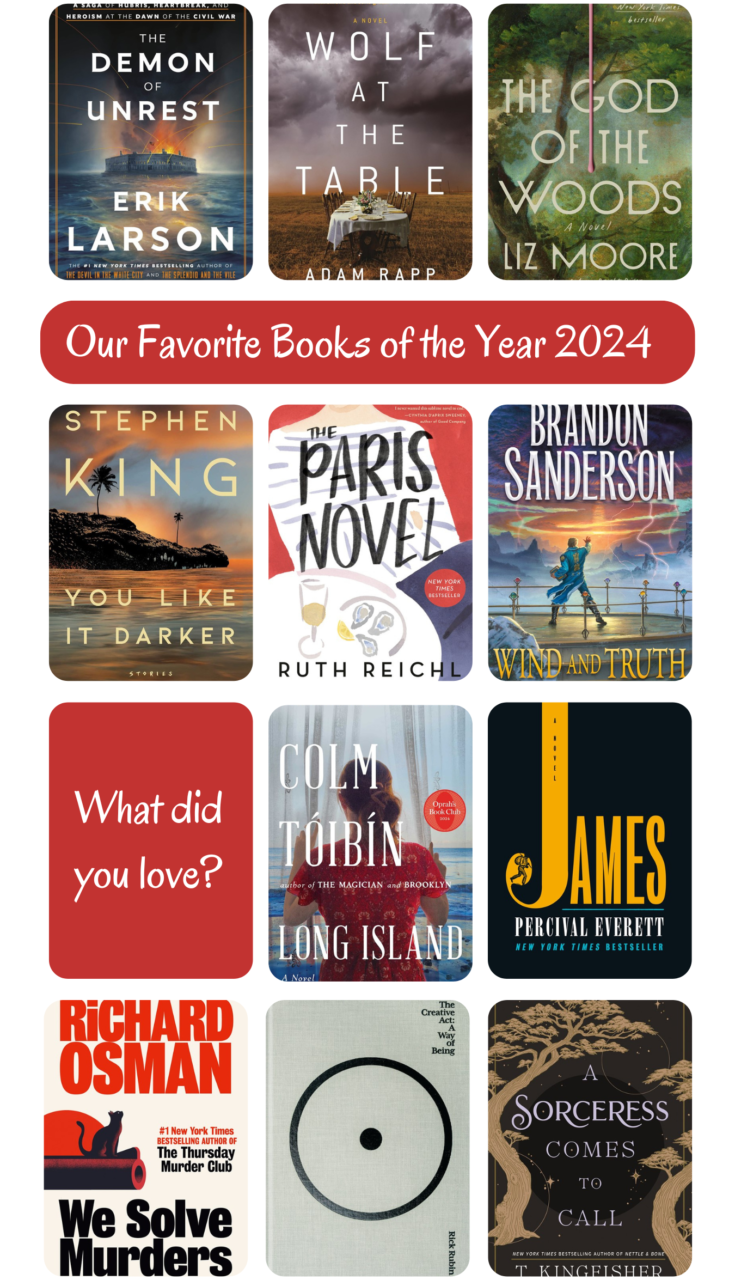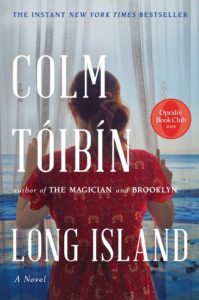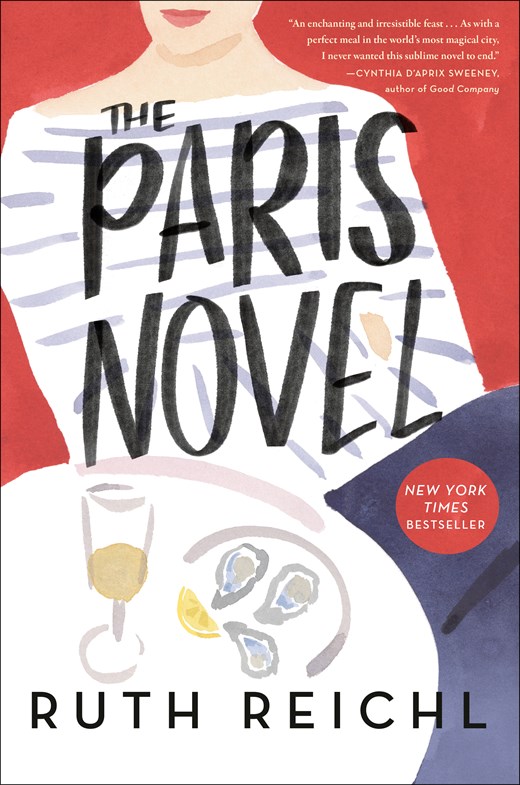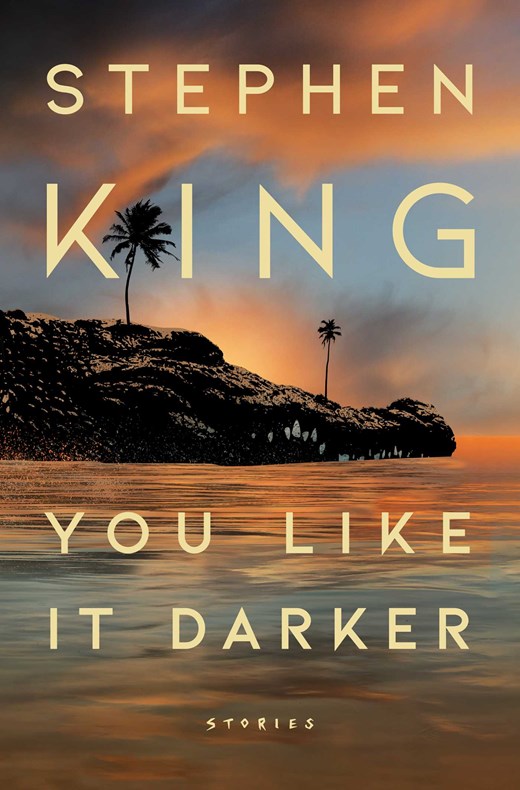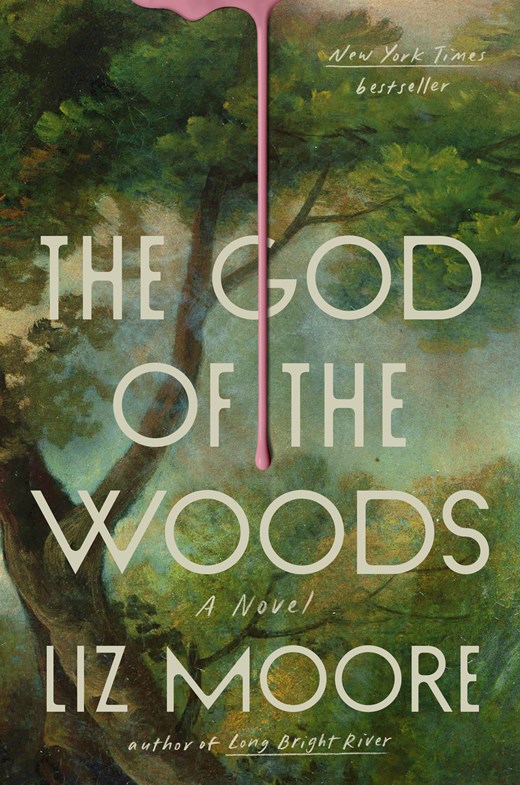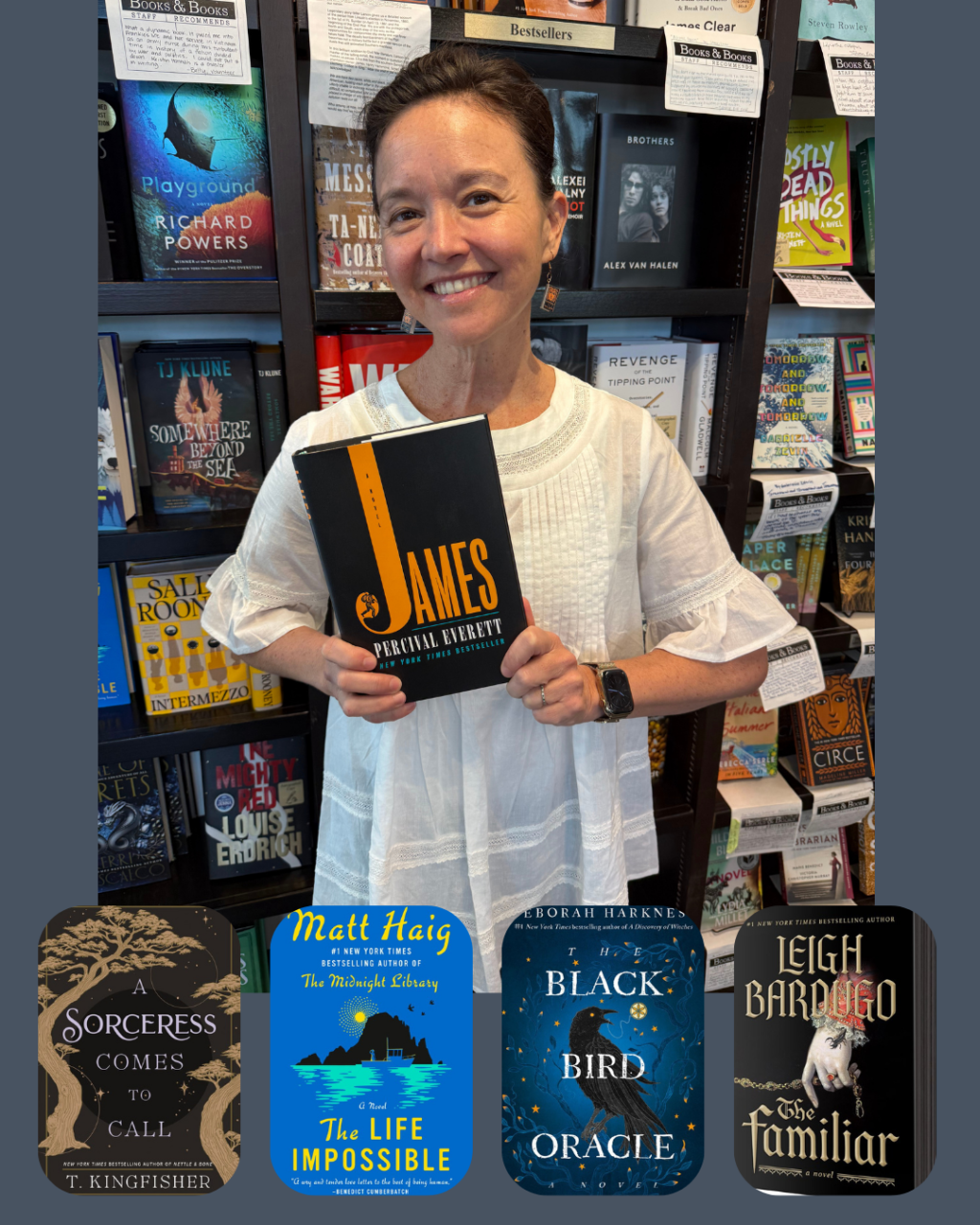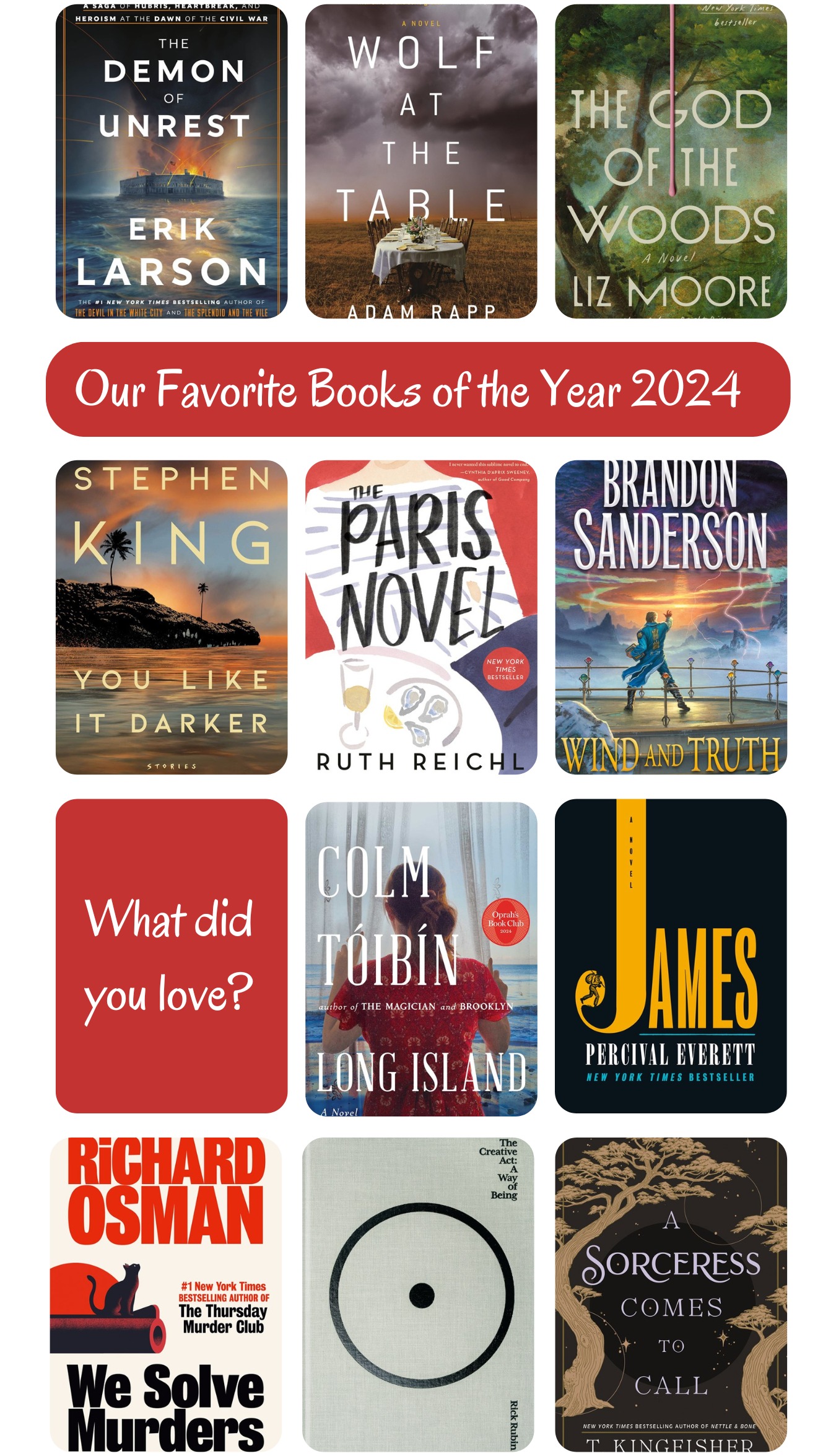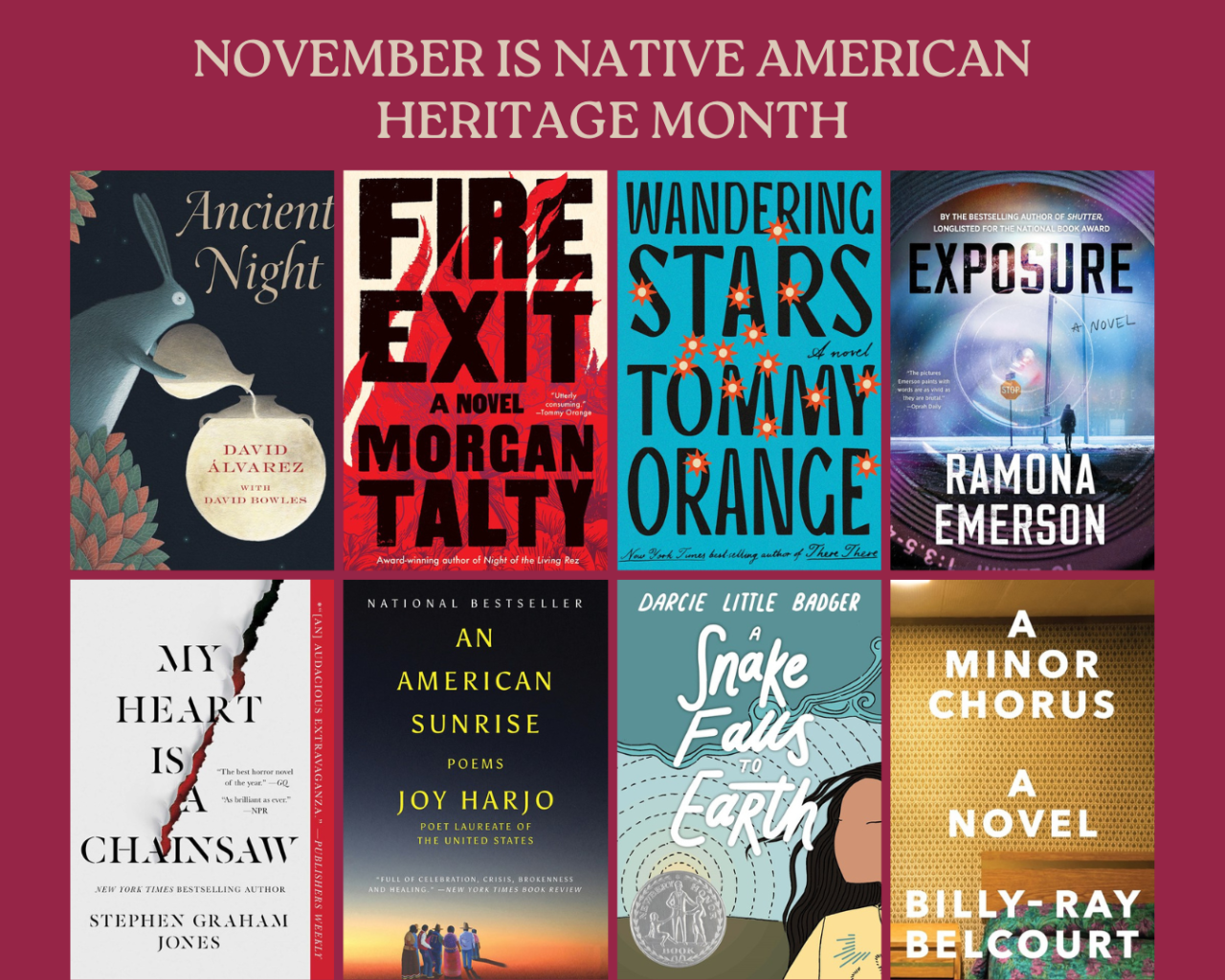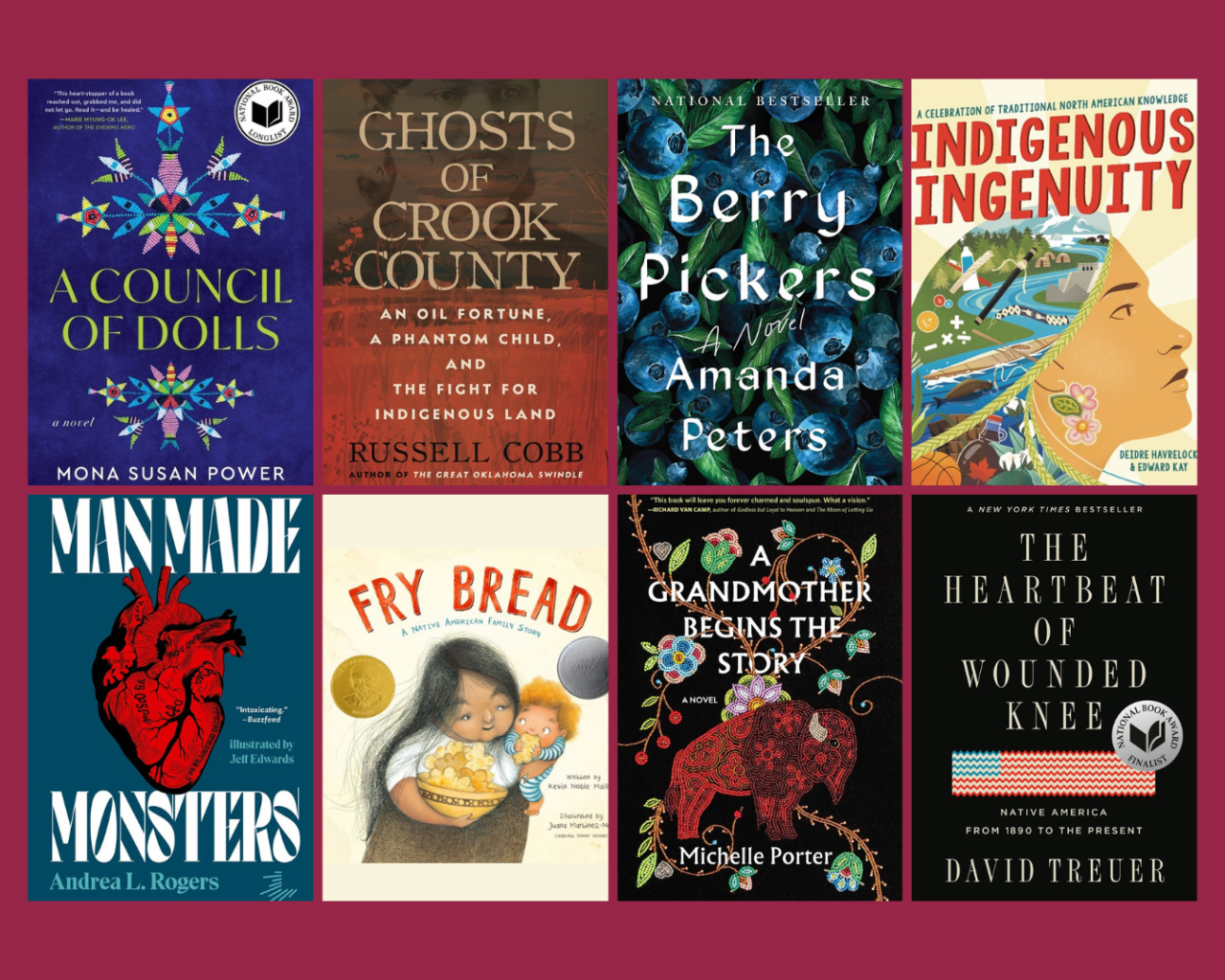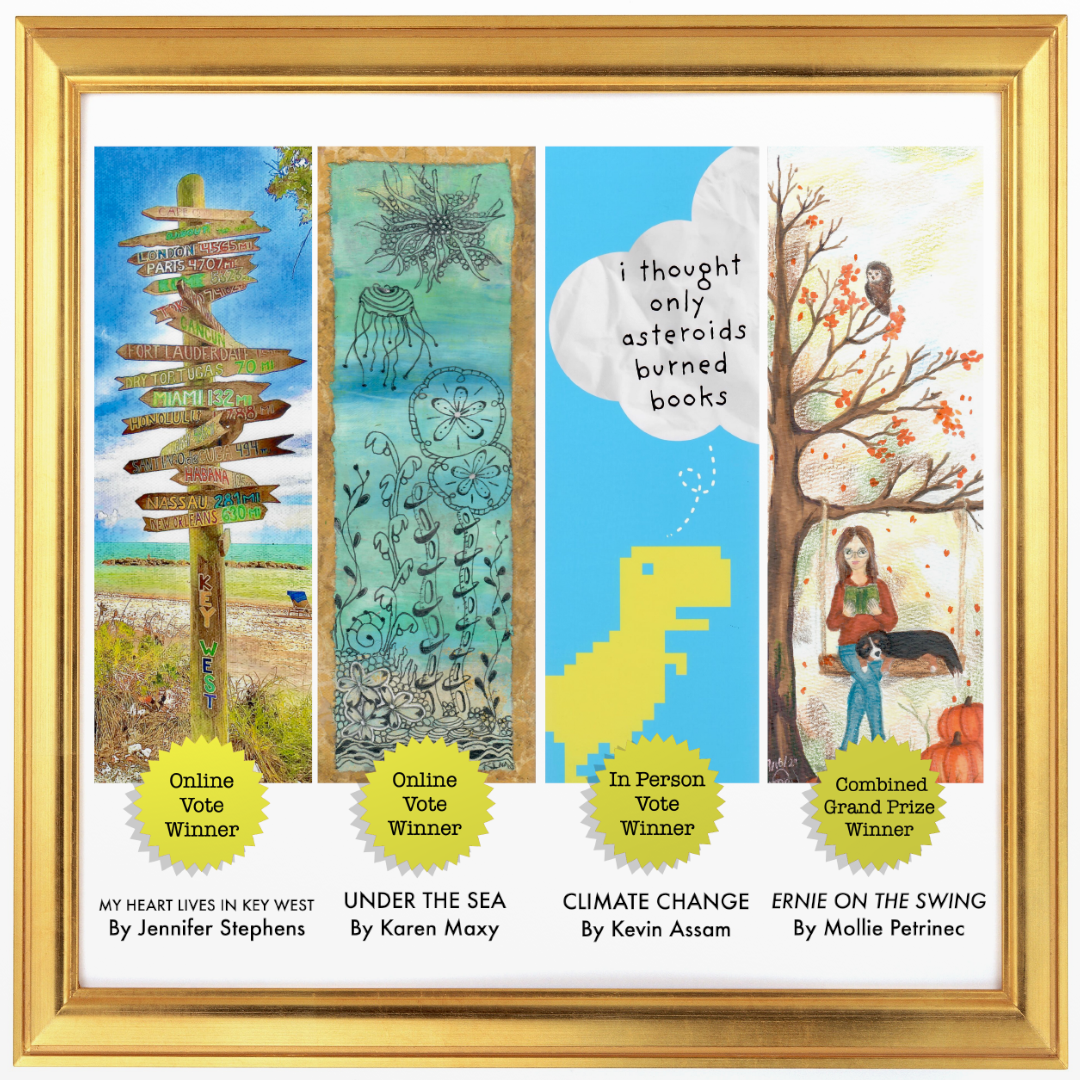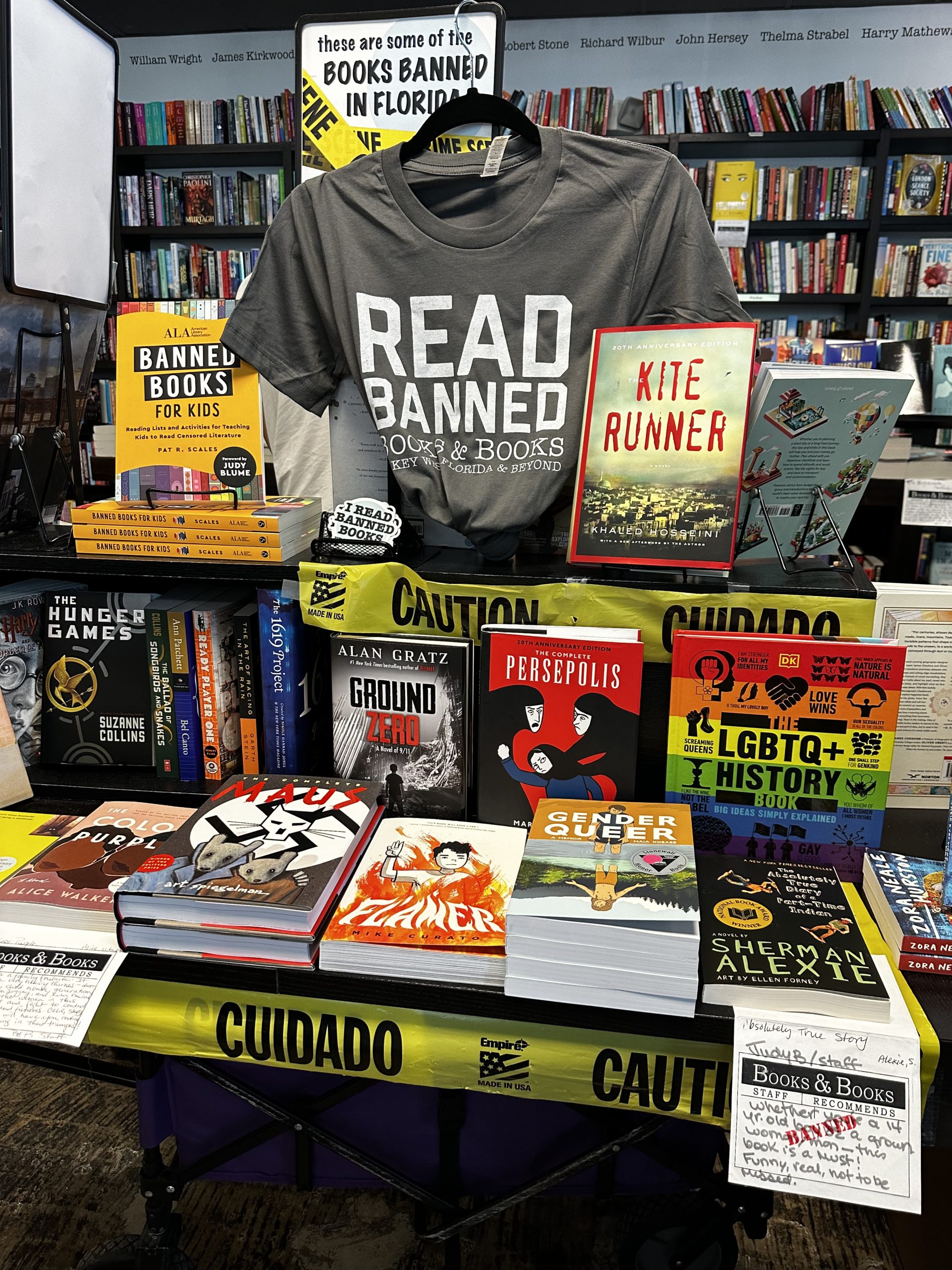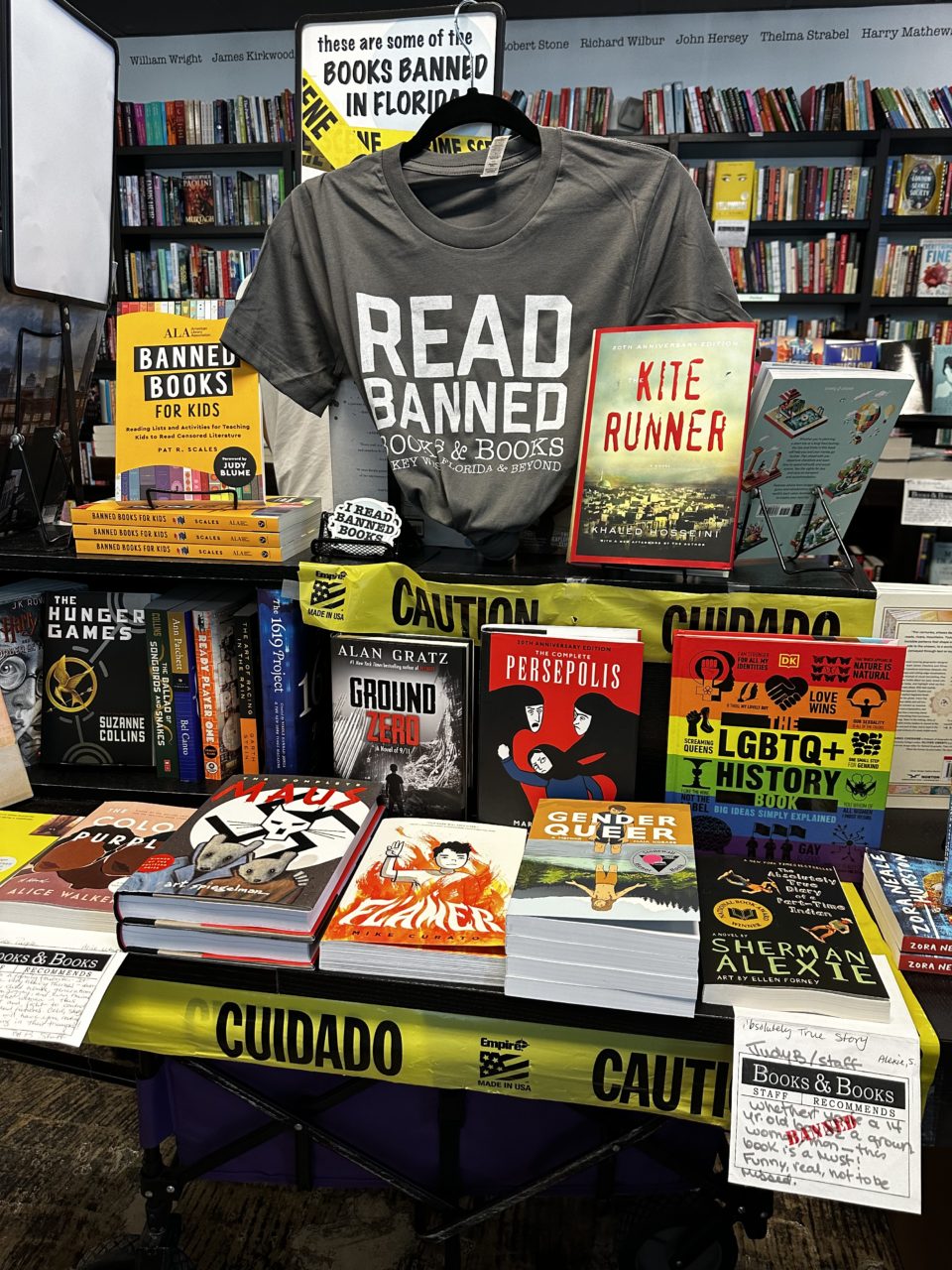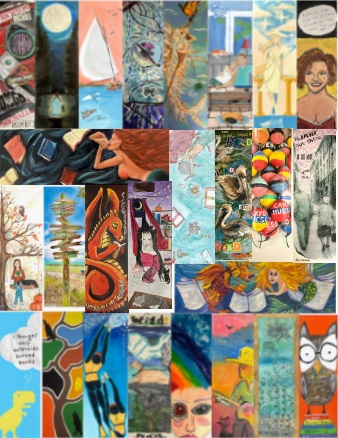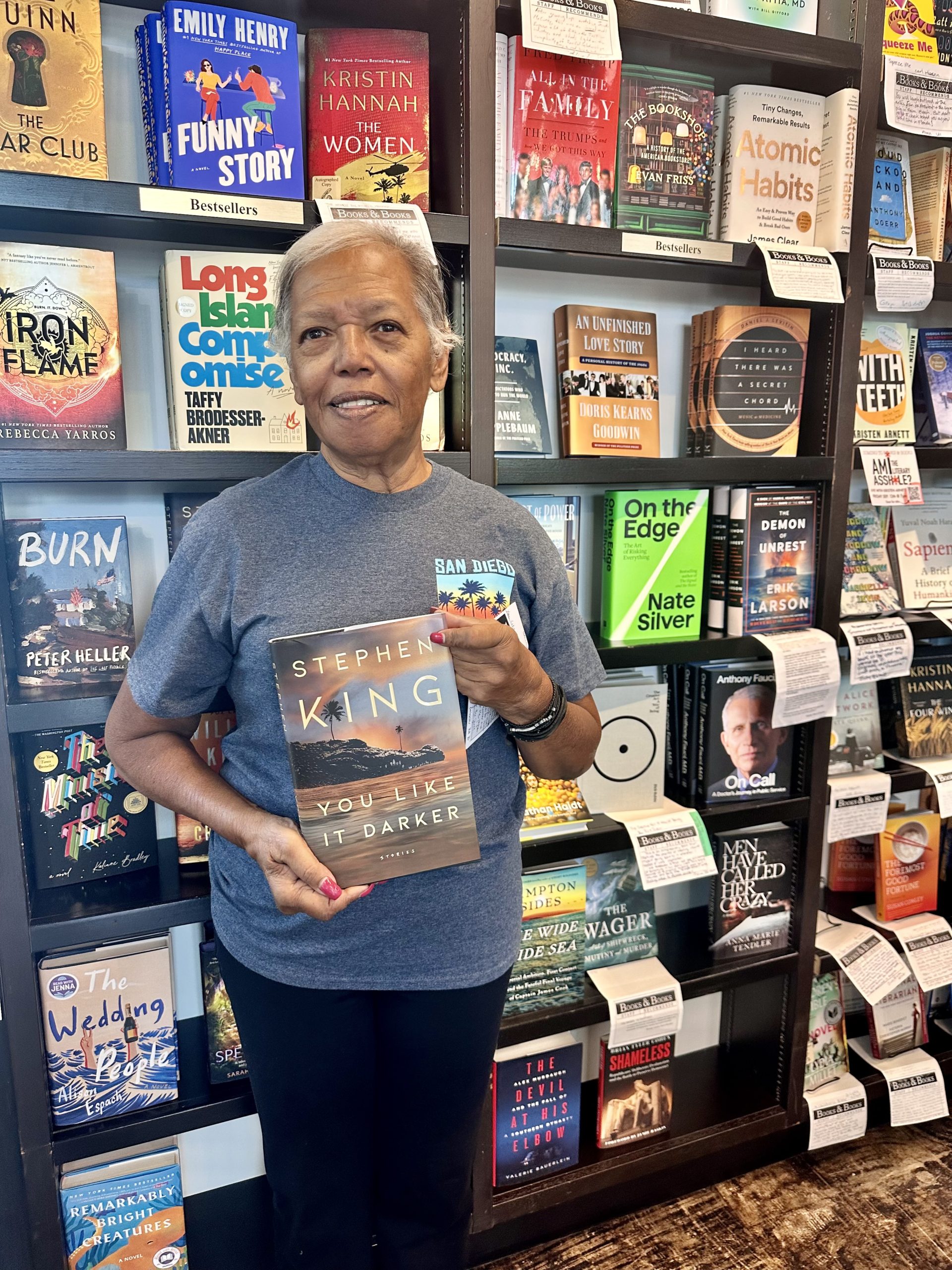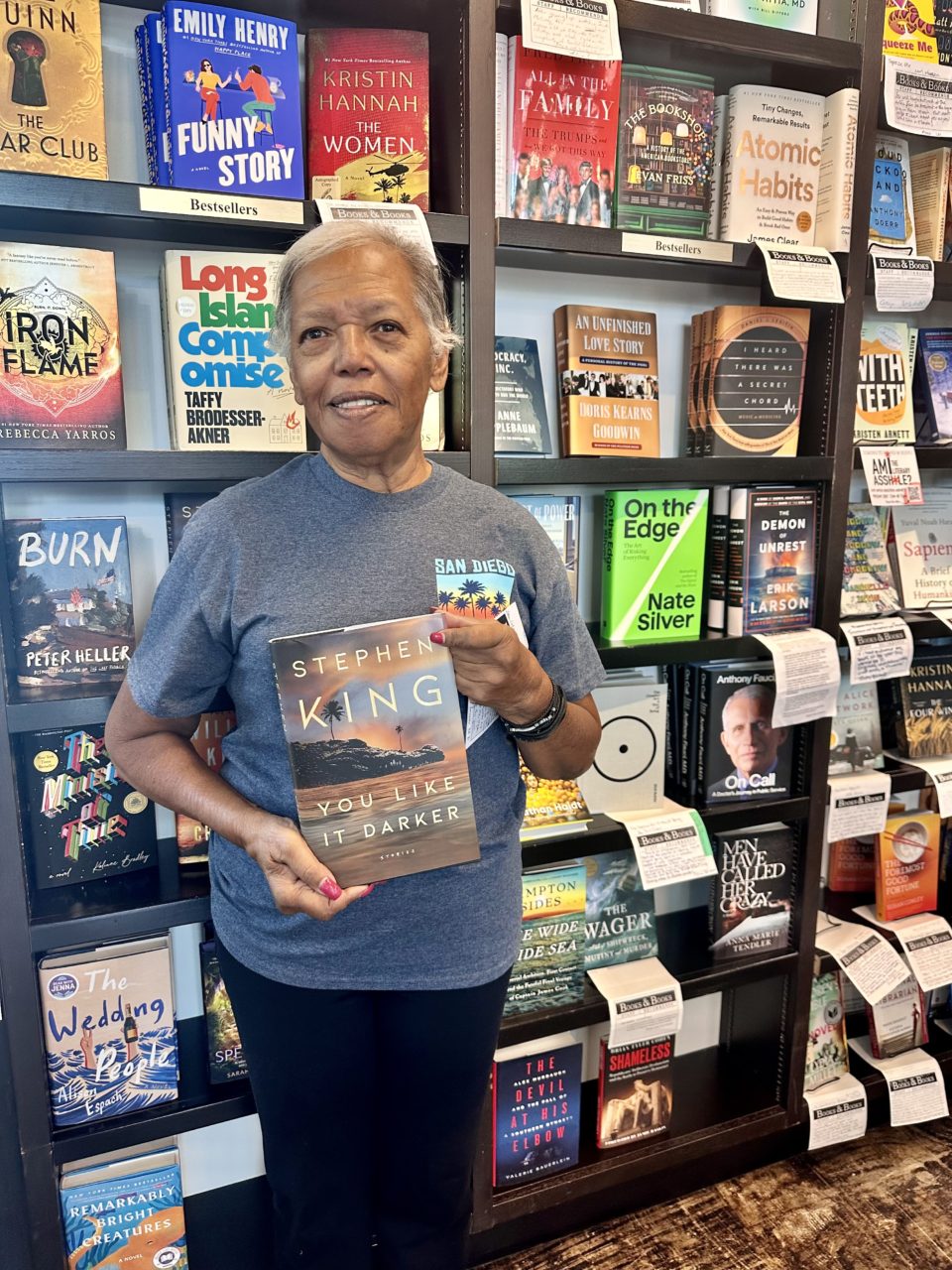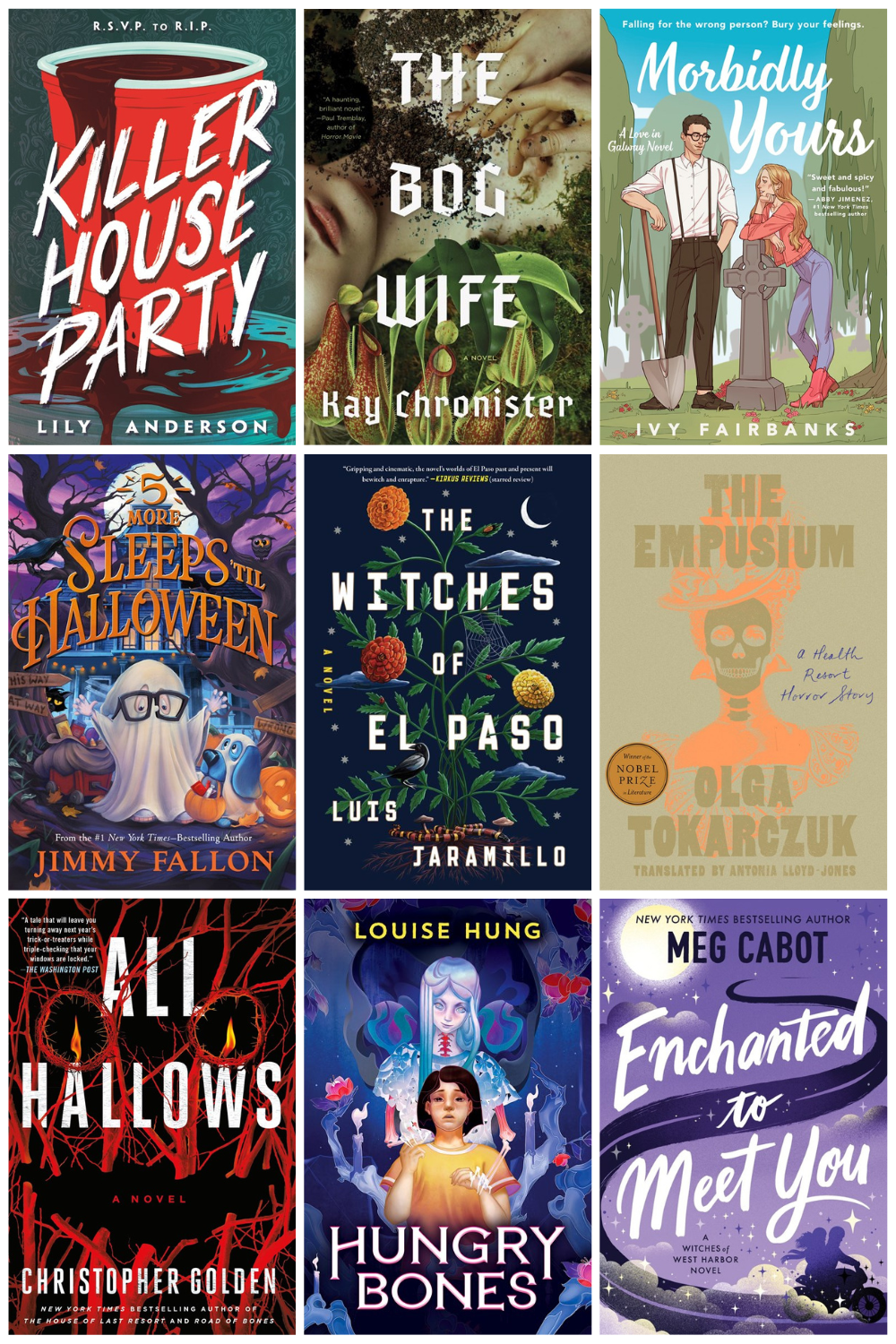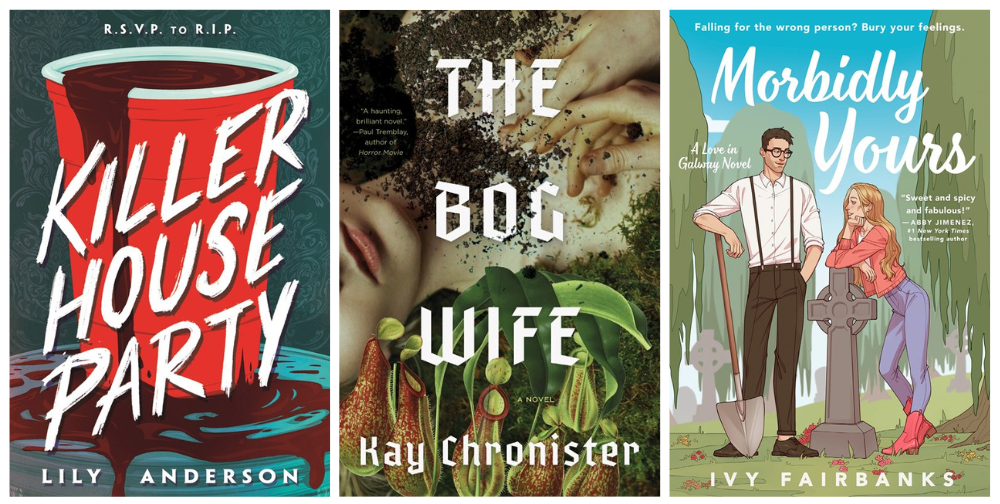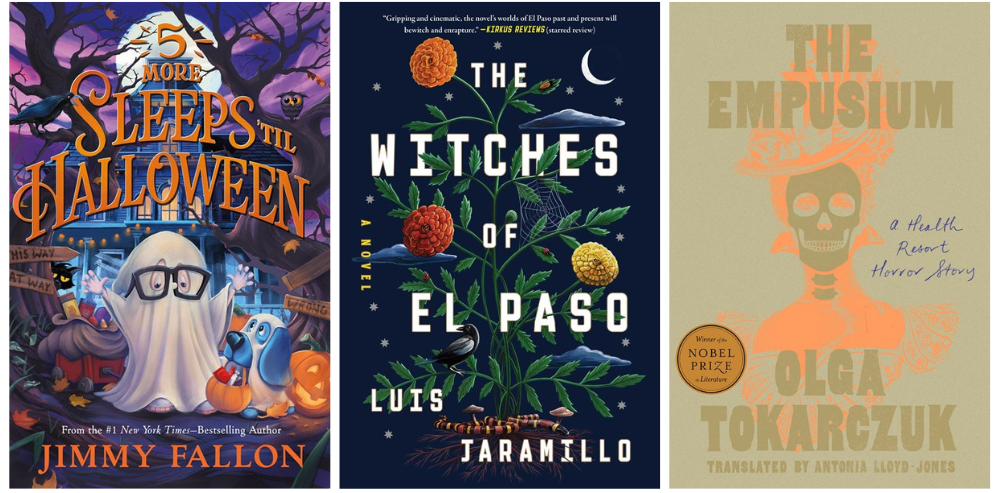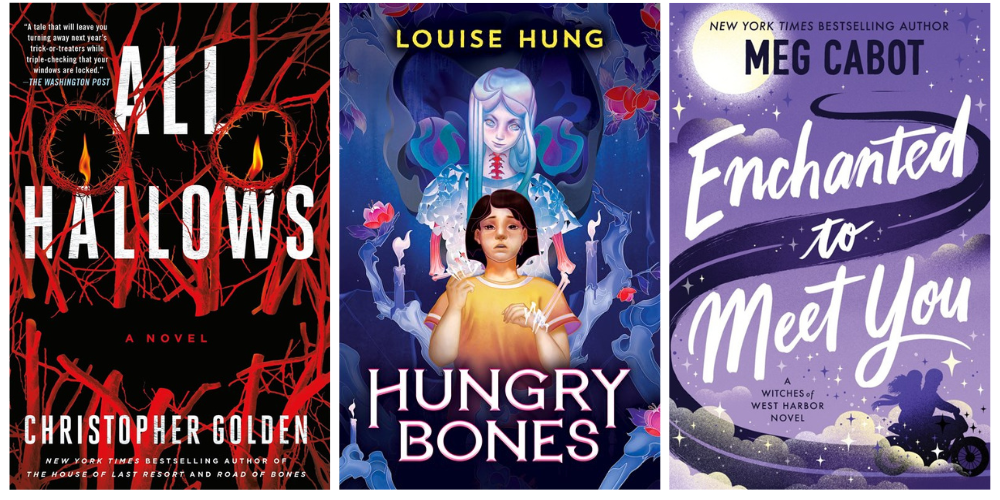Spend some time exploring the history and the vibrant, living cultures of Native American Peoples with a few of the books we are reading and recommending.
Ancient Night by David Alvarez (Illustrator) & David Bowles
At the start of things, the elders say,
the universe was hushed and still.
The moon alone shone bright and round in the star-speckled dark of the sky.
David Álvarez is one of the most extraordinary artists working today. His black-and-white illustrations have gained fame in his home country of Mexico and around the world.
Here, in Ancient Night (Noche Antigua), David displays his immense talent with full-color illustrations for the first time.
Ancient Night is a twist on two Nahuatl traditions: the rabbit which the Feathered Serpent placed on the moon, and Yaushu, the Lord Opossum who ruled the earth before humans came, and who stole fire from the gods to create the sun.
Fire Exit by Morgan Talty
From the award-winning author of Night of the Living Rez, comes a masterful and unforgettable story of family, legacy, bloodlines, culture and inheritance, and what, if anything, we owe one another.
From the porch of his home, Charles Lamosway has watched the life he might have had unfold across the river on Maine’s Penobscot Reservation. He caught brief moments of his neighbor Elizabeth’s life—from the day she came home from the hospital to her early twenties. But there’s something deeper and more dangerous than the river that divides him from her and the rest of the tribal community. It’s the secret that Elizabeth is his daughter, a secret Charles is no longer willing to keep.
Wandering Stars by Tommy Orange
Colorado, 1864. Star, a young survivor of the Sand Creek Massacre, is brought to the Fort Marion prison castle,where he is forced to learn English and practice Christianity by Richard Henry Pratt, an evangelical prison guard who will go on to found the Carlisle Indian Industrial School, an institution dedicated to the eradication of Native history, culture, and identity. A generation later, Star’s son, Charles, is sent to the school, where he is brutalized by the man who was once his father’s jailer. Under Pratt’s harsh treatment, Charles clings to moments he shares with a young fellow student, Opal Viola, as the two envision a future away from the institutional violence that follows their bloodlines.
In a novel that is by turns shattering and wondrous, Tommy Orange has conjured the ancestors of the family readers first fell in love with in There There—warriors, drunks, outlaws, addicts—asking what it means to be the children and grandchildren of massacre. Wandering Stars is a novel about epigenetic and generational trauma that has the force and vision of a modern epic, an exceptionally powerful new book from one of the most exciting writers at work today and soaring confirmation of Tommy Orange’s monumental gifts.
Exposure (A Rita Todacheene Novel #2) by Ramona Emerson
In the follow-up to the National Book Award–longlisted Shutter, Navajo forensic photographer Rita Todacheene grapples with a fanatical serial killer—and the ghosts he leaves behind.
A dual-voice cat-and-mouse thriller, told from the points of view of a killer who has created his own deadly religion and the only person who can stop him, an embattled young detective who sees the ghosts of his Native victims.
In Gallup, New Mexico, where violent crime is five times the national average, a serial killer is operating unchecked, his targets indigent Native people whose murders are easily disguised as death by exposure on the frigid winter streets. He slips unnoticed through town, hidden in plain sight by his unassuming nature, while the voices in his head guide him toward a terrifying vision of glory. As the Gallup detectives struggle to put the pieces together, they consider calling in a controversial specialist to help.
Rita Todacheene, Albuquerque PD forensic photographer, is at a crisis point in her career. Her colleagues are watching her with suspicion after the recent revelation that she can see the ghosts of murder victims. Her unmanageable caseload is further complicated by the fact that half the department has blacklisted her for ratting out a corrupt fellow cop. And back home in Tohatchi on the Navajo reservation, Rita’s grandma is getting older. Maybe it’s time for her to leave policework behind entirely—if only the ghosts will let her . . .
My Heart Is a Chainsaw (The Indian Lake Trilogy #1) by Stephen Graham Jones
Jade Daniels is an angry, half-Indian outcast with an abusive father, an absent mother, and an entire town that wants nothing to do with her. She lives in her own world, a world in which protection comes from an unusual source: horror movies…especially the ones where a masked killer seeks revenge on a world that wronged them. And Jade narrates the quirky history of Proofrock as if it is one of those movies. But when blood actually starts to spill into the waters of Indian Lake, she pulls us into her dizzying, encyclopedic mind of blood and masked murderers, and predicts exactly how the plot will unfold.
Yet, even as Jade drags us into her dark fever dream, a surprising and intimate portrait emerges…a portrait of the scared and traumatized little girl beneath the Jason Voorhees mask: angry, yes, but also a girl who easily cries, fiercely loves, and desperately wants a home. A girl whose feelings are too big for her body. My Heart Is a Chainsaw is her story, her homage to horror and revenge and triumph.
Read Lori’s review from 2021.
An American Sunrise by Joy Harjo
In this stunning collection, Joy Harjo finds blessings in the abundance of her homeland and confronts the site where the Mvskoke people, including her own ancestors, were forcibly displaced. From her memory of her mother’s death, to her beginnings in the Native rights movement, to the fresh road with her beloved, Harjo’s personal life intertwines with tribal histories to create a space for renewed beginnings.
A Snake Falls to Earth: Newbery Honor Award Winner by Darcie Little Badger
A Snake Falls to Earth is a breathtaking work of Indigenous futurism. Darcie Little Badger draws on traditional Lipan Apache storytelling structure to weave another unforgettable tale of monsters, magic, and family. It is not to be missed.
A Minor Chorus by Billy-Ray Belcourt
In the stark expanse of Northern Alberta, a queer Indigenous doctoral student steps away from his dissertation to write a novel, informed by a series of poignant encounters: a heart-to-heart with fellow doctoral student River over the mounting pressure placed on marginalized scholars; a meeting with Michael, a closeted man from his hometown whose vulnerability and loneliness punctuate the realities of queer life on the fringe. Woven throughout these conversations are memories of Jack, a cousin caught in the cycle of police violence, drugs, and survival. Jack’s life parallels the narrator’s own; the possibilities of escape and imprisonment are left to chance with colonialism stacking the odds. A Minor Chorus introduces a dazzling new literary voice whose vision and fearlessness shine much-needed light on the realities of Indigenous survival.
Read Allison’s review.
A Council of Dolls by Mona Susan Power
The long-awaited, profoundly moving, and unforgettable new novel from PEN Award–winning Native American author Mona Susan Power, spanning three generations of Yanktonai Dakota women from the 19th century to the present day.
From the mid-century metropolis of Chicago to the windswept ancestral lands of the Dakota people, to the bleak and brutal Indian boarding schools, A Council of Dolls is the story of three women, told in part through the stories of the dolls they carried….
A modern masterpiece, A Council of Dolls is gorgeous, quietly devastating, and ultimately hopeful, shining a light on the echoing damage wrought by Indian boarding schools, and the historical massacres of Indigenous people. With stunning prose, Mona Susan Power weaves a spell of love and healing that comes alive on the page.
Ghosts of Crook County: An Oil Fortune, a Phantom Child, and the Fight for Indigenous Land by Russell Cobb
In the early 1900s, at the dawn of the “American Century,” few knew the intoxicating power of greed better than white men on the forefront of the black gold rush. When oil was discovered in Oklahoma, these counterfeit tycoons impersonated, defrauded, and murdered Native property owners to snatch up hundreds of acres of oil-rich land.
Writer and fourth-generation Oklahoman Russell Cobb sets the stage for one such oilman’s chicanery: Tulsa entrepreneur Charles Page’s campaign for a young Muscogee boy’s land in Creek County. Problem was, “Tommy Atkins,” the boy in question, had died years prior—if he ever lived at all.
Ghosts of Crook County traces Tommy’s mythologized life through Page’s relentless pursuit of his land. We meet Minnie Atkins and the two other women who claimed to be Tommy’s “real” mother. Minnie would testify a story of her son’s life and death that fulfilled the legal requirements for his land to be transferred to Page. And we meet Tommy himself—or the men who proclaimed themselves to be him, alive and well in court.
Through evocative storytelling, Cobb chronicles with unflinching precision the lasting effects of land-grabbing white men on Indigenous peoples. What emerges are the interconnected stories of unabashedly greedy men, the exploitation of Indigenous land, and the legacy of a boy who may never have existed.
The Berry Pickers by Amanda Peters
July 1962. Following in the tradition of Indigenous workers from Nova Scotia, a Mi’kmaq family arrives in Maine to pick blueberries for the summer. Weeks later, four-year-old Ruthie, the family’s youngest child, vanishes. She is last seen by her six-year-old brother, Joe, sitting on a favorite rock at the edge of a berry field. Joe will remain distraught by his sister’s disappearance for years to come.
In Maine, a young girl named Norma grows up as the only child of an affluent family. Her father is emotionally distant, her mother frustratingly overprotective. Norma is often troubled by recurring dreams and visions that seem more like memories than imagination. As she grows older, Norma slowly comes to realize there is something her parents aren’t telling her. Unwilling to abandon her intuition, she will spend decades trying to uncover this family secret.
Indigenous Ingenuity: A Celebration of Traditional North American Knowledge by Deidre Havrelock & Edward Kay
Corn. Chocolate. Fishing hooks. Boats that float. Insulated double-walled construction. Recorded history and folklore. Life-saving disinfectant. Forest fire management. Our lives would be unrecognizable without these, and countless other, scientific discoveries and technological inventions from Indigenous North Americans. Spanning topics from transportation to civil engineering, hunting technologies, astronomy, brain surgery, architecture, and agriculture, Indigenous Ingenuity is a wide-ranging STEM offering that answers the call for Indigenous nonfiction by reappropriating hidden history. The book includes fun, simple activities and experiments that kids can do to better understand and enjoy the principles used by Indigenous inventors. Readers of all ages are invited to celebrate traditional North American Indigenous innovation, and to embrace the mindset of reciprocity, environmental responsibility, and the interconnectedness of all life.
Man Made Monsters by Andrea L. Rogers
Imagine a chilling horror collection that weaves classic monsters like werewolves and vampires with the true horrors of colonialism, domestic violence, and displacement. Man Made Monsters, by acclaimed Cherokee writer Andrea Rogers, delivers.
Follow a Cherokee family across centuries, from their ancestral lands in 1830s Georgia to the battlefields of World War I and Vietnam, and beyond. Each story offers a chilling glimpse into a different era, revealing how history’s monsters intertwine with the supernatural.
Man Made Monsters is a powerful exploration of identity and the enduring legacy of colonization. Rogers masterfully blends Cherokee legends with chilling horror, creating unforgettable characters and monsters.
Each story is accompanied by haunting illustrations from Cherokee artist Jeff Edwards, incorporating the Cherokee syllabary for a truly immersive experience.
Fry Bread: A Native American Family Story by Kevin Noble Maillard, Juana Martinez-Neal (Illustrator)
Told in lively and powerful verse by debut author Kevin Noble Maillard, Fry Bread is an evocative depiction of a modern Native American family, vibrantly illustrated by Pura Belpre Award winner and Caldecott Honoree Juana Martinez-Neal.
Fry bread is food.
It is warm and delicious, piled high on a plate.
Fry bread is time.
It brings families together for meals and new memories.
Fry bread is nation.
It is shared by many, from coast to coast and beyond.
Fry bread is us.
It is a celebration of old and new, traditional and modern, similarity and difference.
A Grandmother Begins the Story by Michelle Porter
From award-winning Métis author Michelle Porter, a powerfully funny and moving story told not just by five generations of Métis women, but also by the land, the bison that surround them, and two utterly captivating dogs.
Carter is a young mother on a quest to find the true meaning of her heritage, which she only learned of in her teens. Allie is trying to make up for the lost years with her first born and to protect Carter from the hurt she herself suffered from her own mother. Lucie wants the granddaughter she’s never met to help her get to her ancestors in the afterlife. And Geneviève is determined to conquer her demons—before the fire inside burns her up—with the help of the sister she lost but has never been without. Meanwhile, Mamé, in the afterlife, knows that all their stories began with her; she must find a way to cut herself from the last threads that keep her tethered to the living, just as they must find their own paths forward. And a young bison wants to understand why he keeps being moved and whether he should make a break for it and run for his life.
This extraordinary novel, told by a chorus of vividly realized, wise, confused, struggling characters attempting to make sense of this life and the next, heralds the arrival of a stunning new voice in literary fiction.
The Heartbeat of Wounded Knee: Native America from 1890 to the Present by David Treuer
A sweeping history—and counter-narrative—of Native American life from the Wounded Knee massacre to the present.
The received idea of Native American history—as promulgated by books like Dee Brown’s mega-bestselling 1970 Bury My Heart at Wounded Knee—has been that American Indian history essentially ended with the 1890 massacre at Wounded Knee. Not only did one hundred fifty Sioux die at the hands of the U. S. Cavalry, the sense was, but Native civilization did as well.
Growing up Ojibwe on a reservation in Minnesota, training as an anthropologist, and researching Native life past and present for his nonfiction and novels, David Treuer has uncovered a different narrative. Because they did not disappear—and not despite but rather because of their intense struggles to preserve their language, their traditions, their families, and their very existence—the story of American Indians since the end of the nineteenth century to the present is one of unprecedented resourcefulness and reinvention.
In The Heartbeat of Wounded Knee, Treuer melds history with reportage and memoir. Tracing the tribes’ distinctive cultures from first contact, he explores how the depredations of each era spawned new modes of survival. The devastating seizures of land gave rise to increasingly sophisticated legal and political maneuvering that put the lie to the myth that Indians don’t know or care about property. The forced assimilation of their children at government-run boarding schools incubated a unifying Native identity. Conscription in the US military and the pull of urban life brought Indians into the mainstream and modern times, even as it steered the emerging shape of self-rule and spawned a new generation of resistance. The Heartbeat of Wounded Knee is the essential, intimate story of a resilient people in a transformative era.
